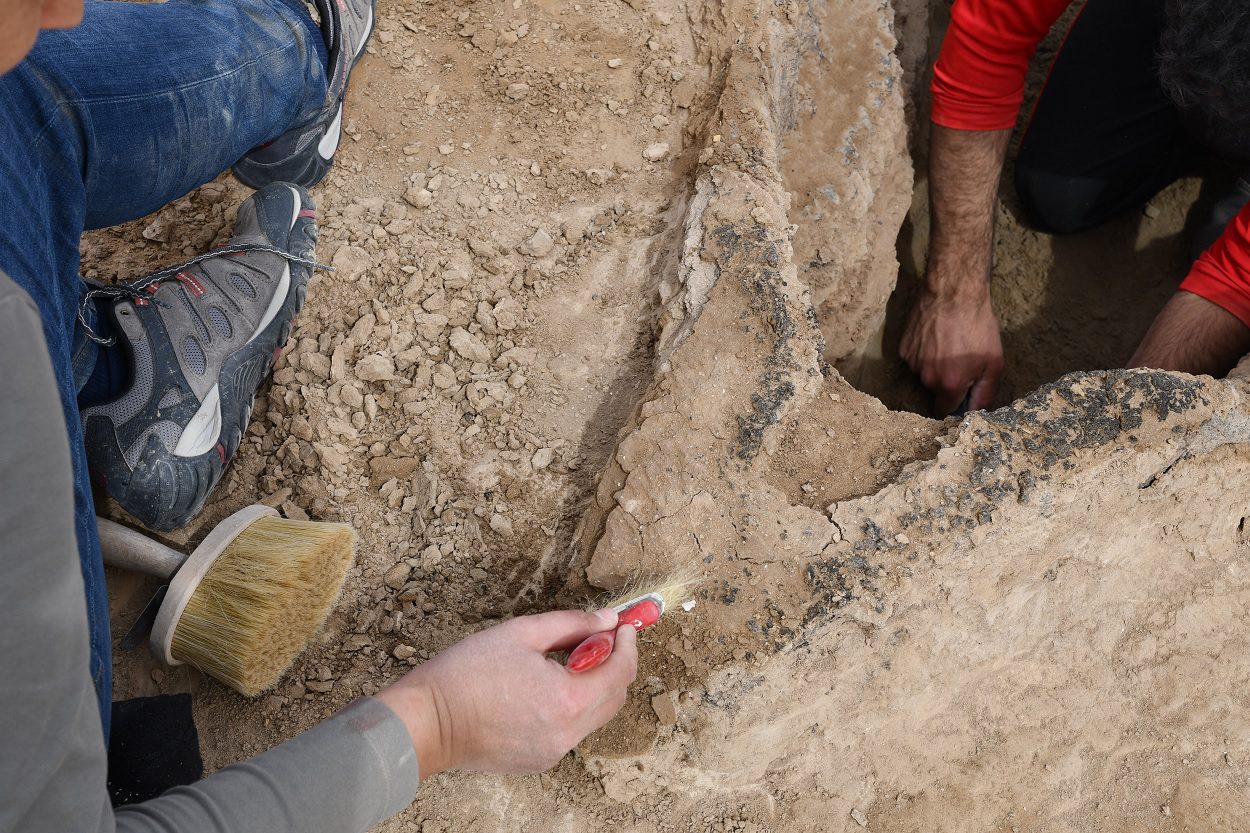A team of archaeologists from the Iraqi German Mission of the State Board of Antiquities and the Orient Department of the German Archaeological Institute have excavated a 4000-year-old boat near the ancient city of Uruk.
Uruk, also known as Warka was an ancient city of Sumer (and later of Babylonia), situated on the dried-up ancient channel of the Euphrates River.
Uruk played a leading role in the early urbanisation of Sumer in the mid-4th millennium BC, emerging as a major population centre until it was abandoned shortly before or after the Islamic conquest of AD 633–638.
The boat was first discovered during a study of the Uruk-Warka environs in 2018, where it was photogrammetrically documented, however, the threat of road traffic near the site has led to a rescue excavation to preserve the remains.
Constructed from reed, palm leaves and wood, the boat was covered in bitumen, a substance produced through the distillation of crude oil that is known for its waterproofing and adhesive properties.
Measuring 7 metres in length and 1.4 metres wide, the archaeological context shows that the boat sank on the banks of a river around 4000-years-ago and became buried in layers of sediment.
In accordance with Iraqi antiquities law, it was taken to the Iraq Museum in Baghdad for further scientific study and conservation.
Deutsches Archäologisches Institut
Header Image Credit : Julia Nador, Deutsches Archäologisches Institut





